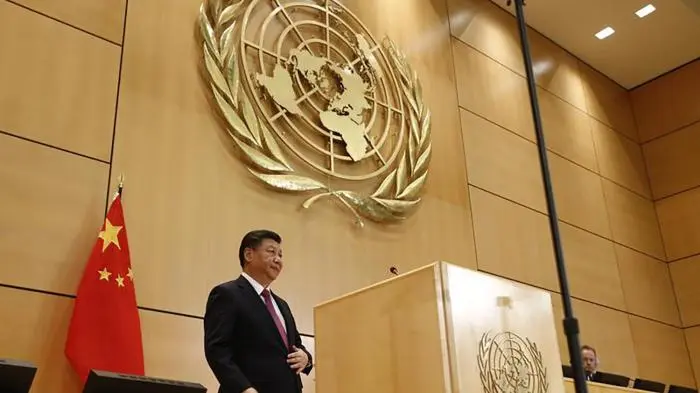Contentious Debate Halts Adoption of Key Health Document

The fifty-eighth session of the Commission on Population and Development concluded without adopting a crucial outcome document, reflecting deep divisions among delegates over sexual and reproductive health services and rights. Chair Catharina Jannigje Lasseur of the Netherlands withdrew the draft resolution, citing a lack of consensus, which has raised concerns about the commitment to the 2030 Agenda for Sustainable Development. The failure to reach an agreement has left many questioning the future of reproductive rights and health initiatives globally.
Withdrawal of the Draft Resolution
At the beginning of the session, Chair Catharina Jannigje Lasseur announced the withdrawal of the draft resolution titled “Ensuring healthy lives and promoting well-being for all at all ages.” This document aimed to affirm the right to the highest attainable standard of physical and mental health and to ensure universal access to sexual and reproductive healthcare services. Lasseur expressed disappointment over the lack of agreement, stating, “I see no other possibility at this late hour than to withdraw my proposal.” The resolution was intended to reinforce commitments made during the 1994 International Conference on Population and Development in Cairo, which emphasized the importance of reproductive health and rights as essential to development.
Divided Opinions on Reproductive Rights
The discussion that followed the resolution’s withdrawal highlighted stark divisions among member states. Several delegates voiced concerns regarding the terminology surrounding “sexual and reproductive health services” and “reproductive rights.” The representative from Djibouti noted that these terms have become increasingly controversial, while the Holy See’s observer echoed similar sentiments, stating that such language has always sparked debate. Nigeria’s delegate criticized the facilitators for ignoring calls to remove contentious language, emphasizing the need to respect cultural and ethical values.
Burundi’s representative insisted that “sexual and reproductive rights” should not imply a right to abortion, and that “gender” should strictly refer to biological sexes. Delegates from Iran, Cameroon, Belarus, and the Russian Federation echoed these sentiments, insisting that any resolution must acknowledge the role of the family in sustainable development. In contrast, South Africa’s delegate, speaking on behalf of several countries, expressed concern over the erosion of fundamental rights and reaffirmed commitment to the Programme of Action established in Cairo.
Support for the 2030 Agenda Remains Strong
Despite the contentious atmosphere, many delegates reiterated their support for the 2030 Agenda for Sustainable Development. Representatives from countries such as Chile, Lebanon, and Japan emphasized the importance of adhering to international commitments. The delegate from Poland, representing the European Union, highlighted the need for a world free from sexual and gender-based violence, where women and girls can make informed choices about their health and well-being.
Germany’s delegate stressed the urgency of working together to fulfill the aspirations outlined in the Programme of Action and the 2030 Agenda. Meanwhile, the United States expressed its rejection of the 2030 Agenda, a stance that was met with concern from other delegations. Brazil’s representative warned against selective adherence to international commitments, while China described the rejection of the 2030 Agenda references as a historical regression.
Looking Ahead: Future Sessions and Challenges
As the session concluded, Lasseur encouraged delegates to reflect on the Commission’s broader role in promoting health and well-being. Although no consensus document was adopted, she noted the positive exchanges that took place during the session. Natalia Kanem, Executive Director of UNFPA, lamented the lack of an actionable outcome, emphasizing the dire consequences for women and girls who continue to face health and rights challenges. She called for urgent action to address the needs of the most vulnerable populations.
The Commission adopted its report for the fifty-eighth session and set the provisional agenda for the next session, which will focus on “Population, poverty eradication, and sustainable development.” The session concluded with the election of new leadership, including Zéphyrin Maniratanga from Burundi as Chair. As the Commission prepares for its next meeting, the ongoing debates surrounding reproductive rights and health services will likely remain at the forefront of discussions.
Observer Voice is the one stop site for National, International news, Sports, Editor’s Choice, Art/culture contents, Quotes and much more. We also cover historical contents. Historical contents includes World History, Indian History, and what happened today. The website also covers Entertainment across the India and World.
Follow Us on Twitter, Instagram, Facebook, & LinkedIn

